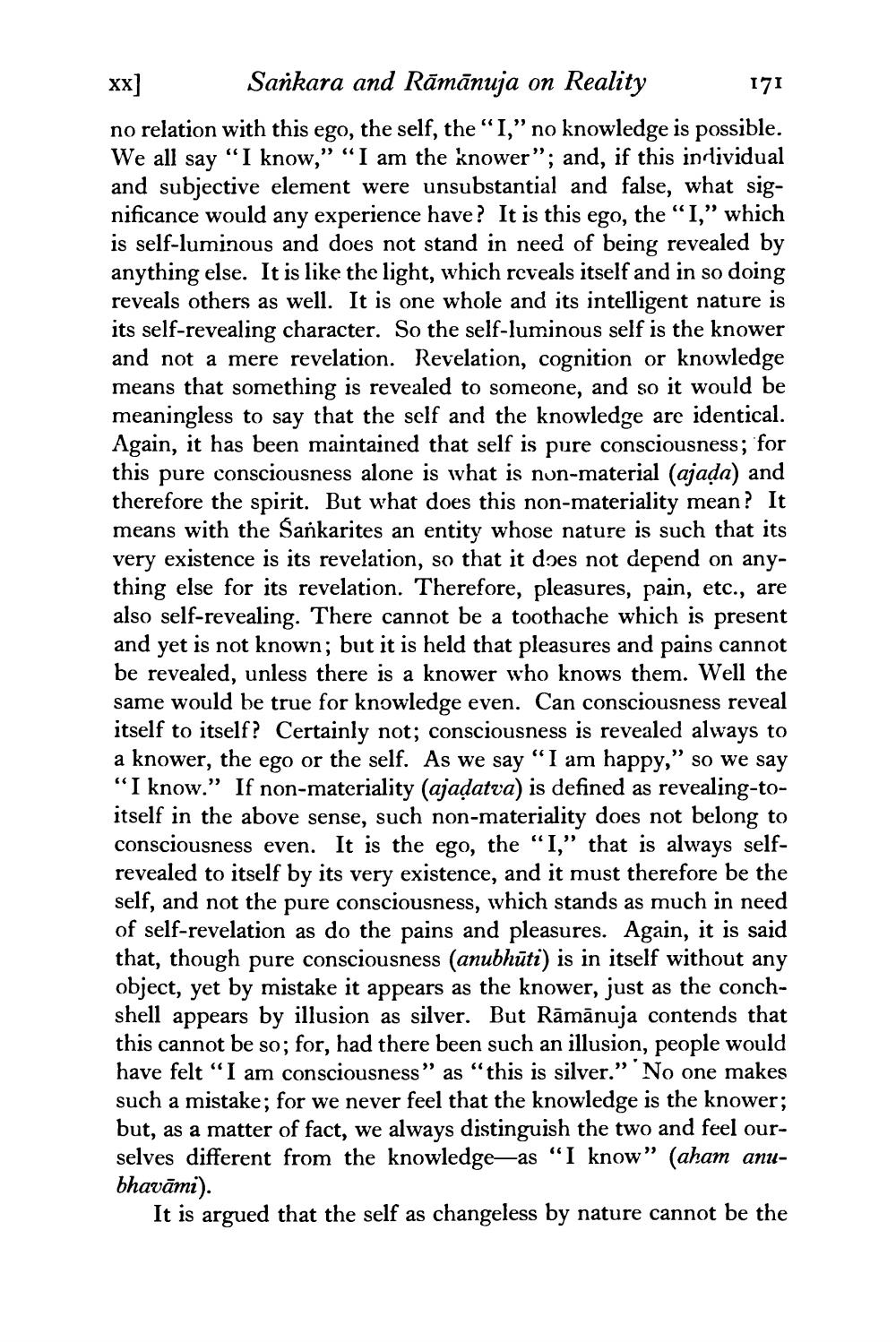________________
Sankara and Rāmānuja on Reality 171 no relation with this ego, the self, the "I," no knowledge is possible. We all say "I know," "I am the knower"; and, if this individual and subjective element were unsubstantial and false, what significance would any experience have? It is this ego, the “I," which is self-luminous and does not stand in need of being revealed by anything else. It is like the light, which reveals itself and in so doing reveals others as well. It is one whole and its intelligent nature is its self-revealing character. So the self-luminous self is the knower and not a mere revelation. Revelation, cognition or knowledge means that something is revealed to someone, and so it would be meaningless to say that the self and the knowledge are identical. Again, it has been maintained that self is pure consciousness; for this pure consciousness alone is what is nun-material (ajada) and therefore the spirit. But what does this non-materiality mean? It means with the Sankarites an entity whose nature is such that its very existence is its revelation, so that it does not depend on anything else for its revelation. Therefore, pleasures, pain, etc., are also self-revealing. There cannot be a toothache which is present and yet is not known; but it is held that pleasures and pains cannot be revealed, unless there is a knower who knows them. Well the same would be true for knowledge even. Can consciousness reveal itself to itself? Certainly not; consciousness is revealed always to a knower, the ego or the self. As we say “I am happy," so we say "I know.” If non-materiality (ajadatva) is defined as revealing-toitself in the above sense, such non-materiality does not belong to consciousness even. It is the ego, the “I," that is always selfrevealed to itself by its very existence, and it must therefore be the self, and not the pure consciousness, which stands as much in need of self-revelation as do the pains and pleasures. Again, it is said that, though pure consciousness (anubhūti) is in itself without any object, yet by mistake it appears as the knower, just as the conchshell appears by illusion as silver. But Rāmānuja contends that this cannot be so; for, had there been such an illusion, people would have felt "I am consciousness” as "this is silver.” 'No one makes such a mistake; for we never feel that the knowledge is the knower; but, as a matter of fact, we always distinguish the two and feel ourselves different from the knowledge—as “I know” (aham anubhavāmi).
It is argued that the self as changeless by nature cannot be the




